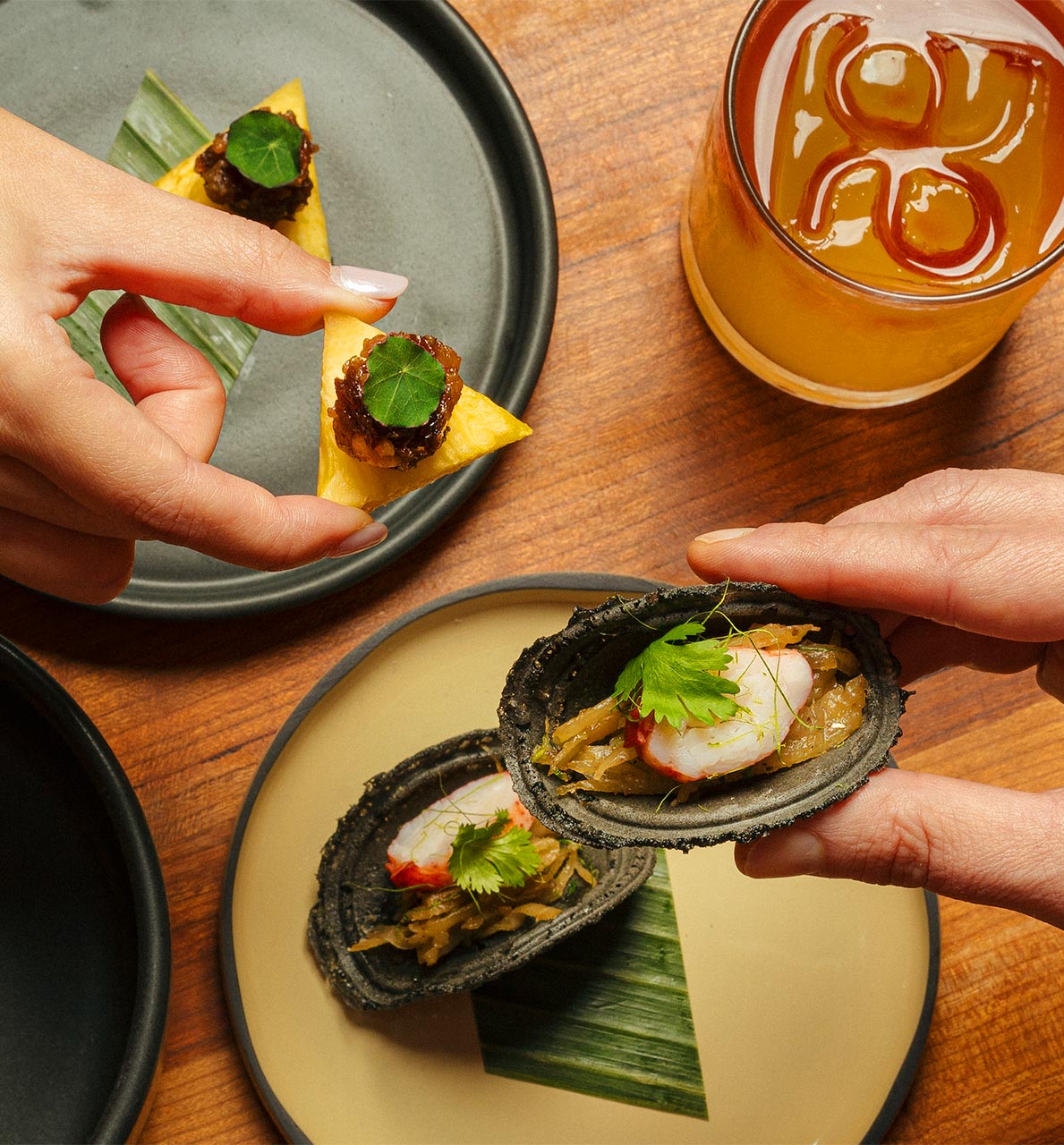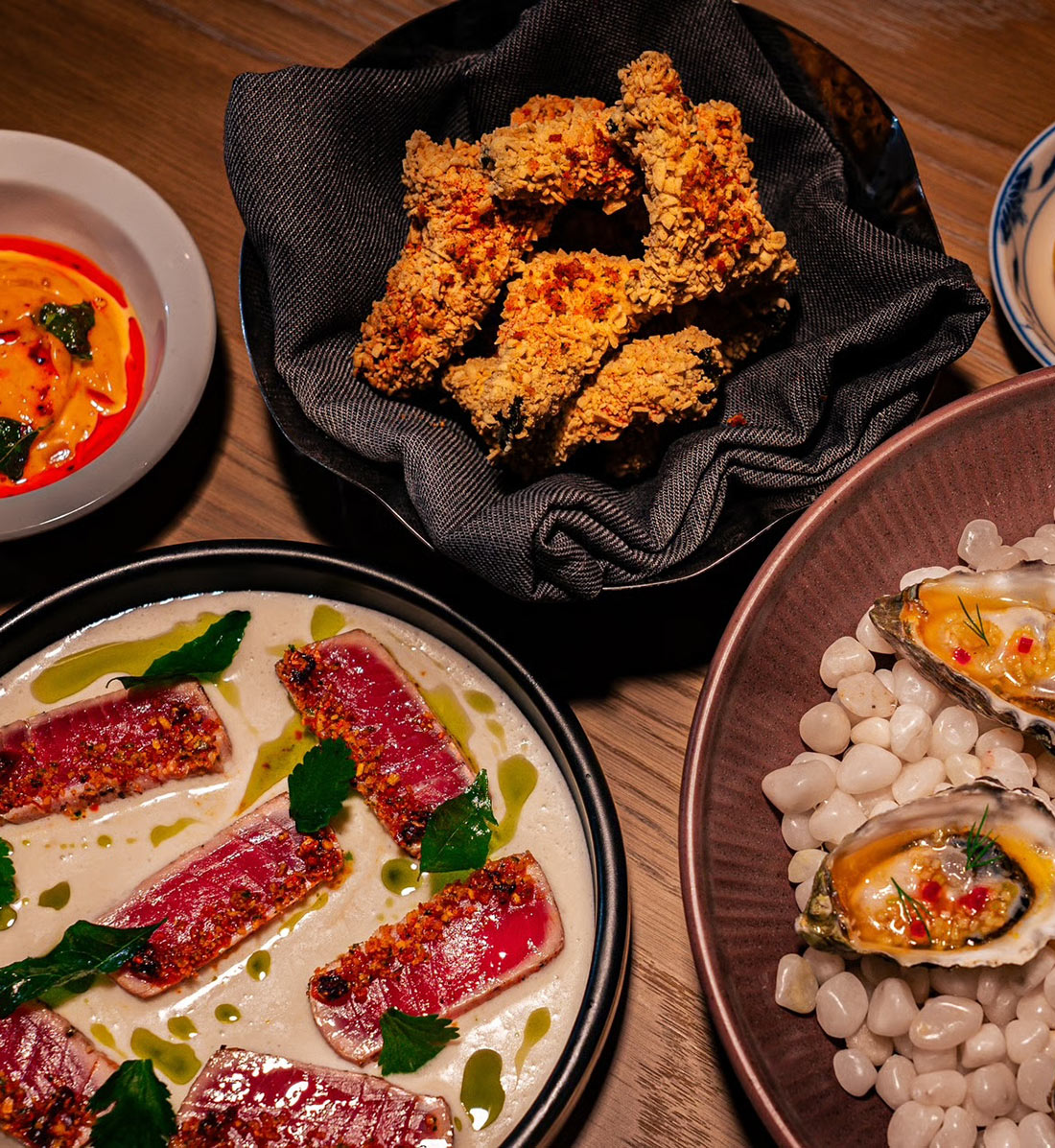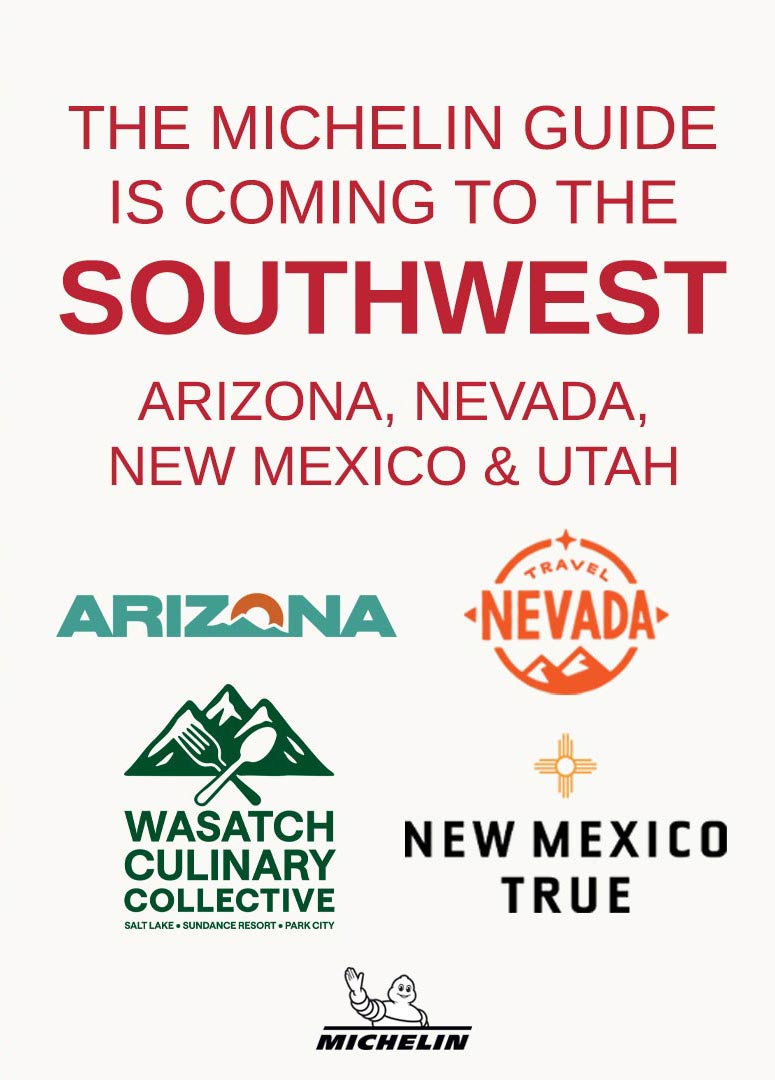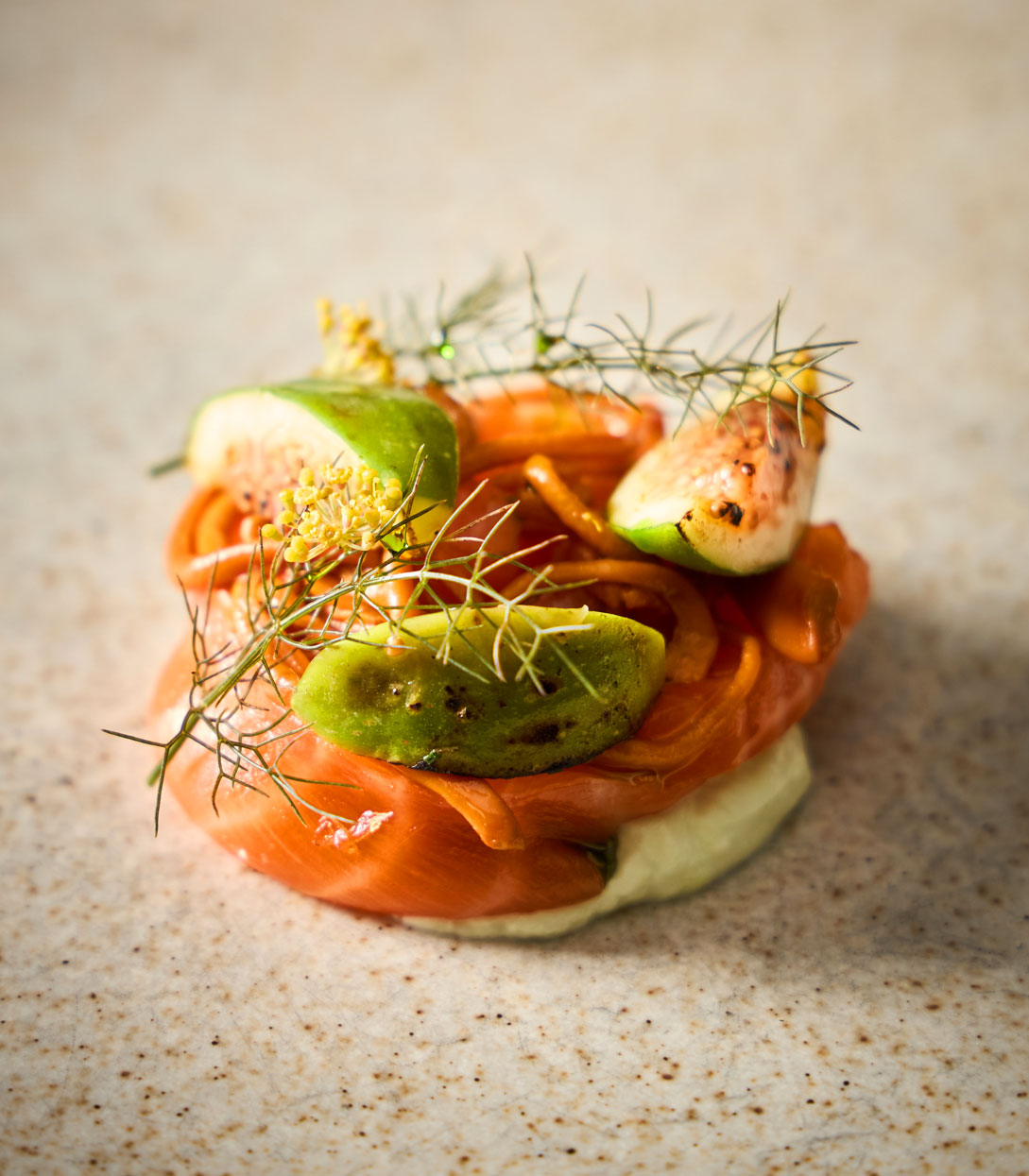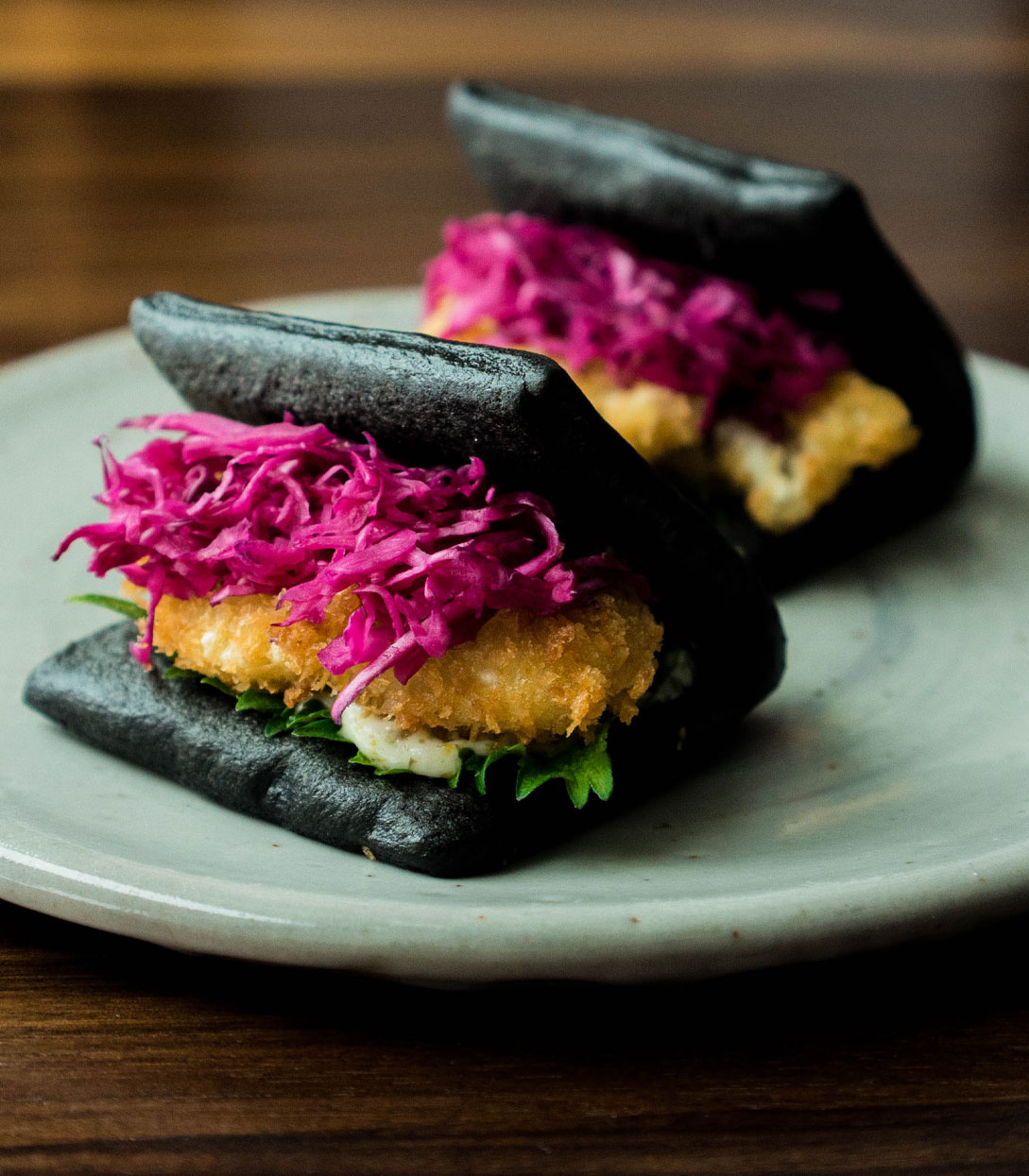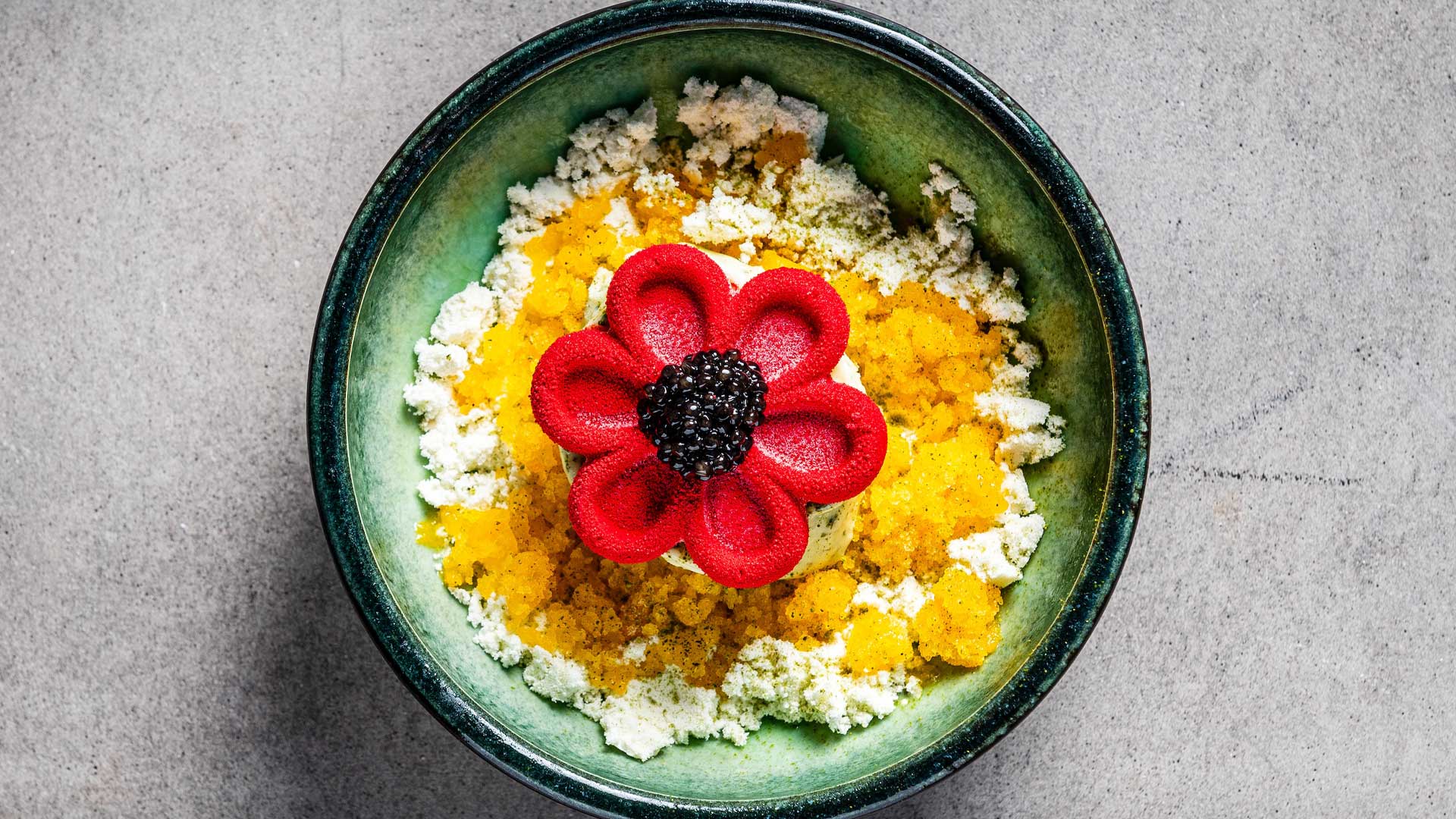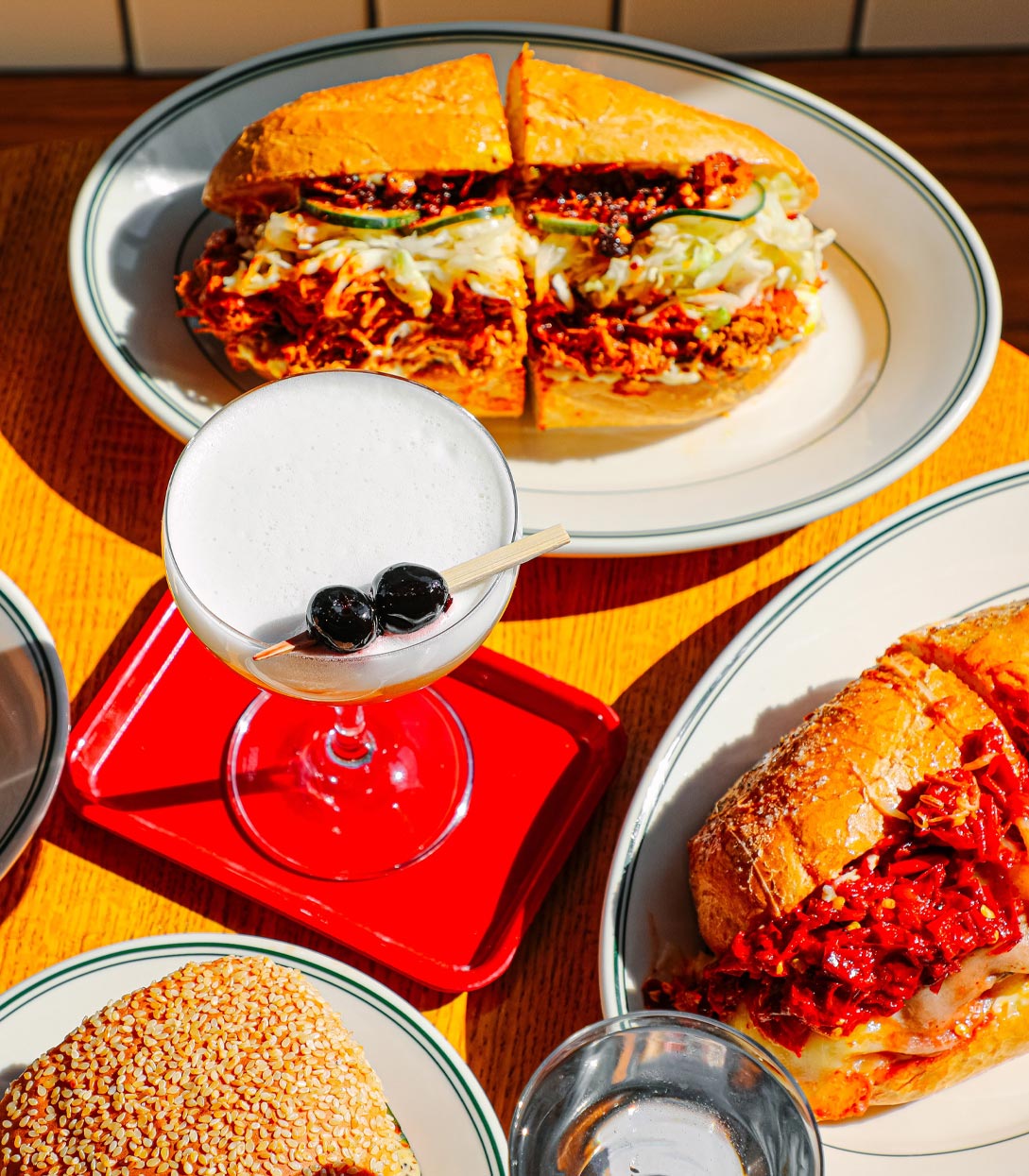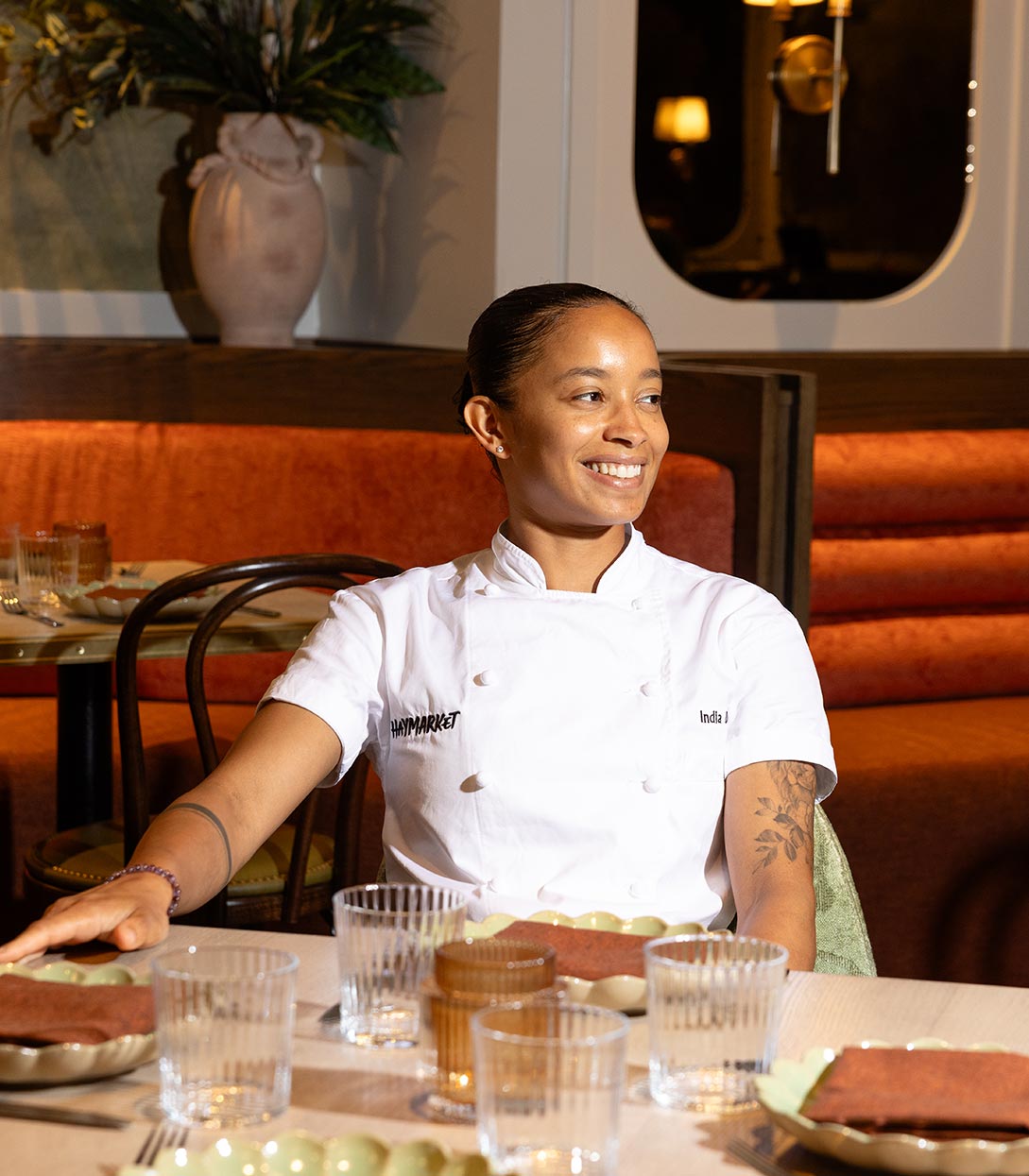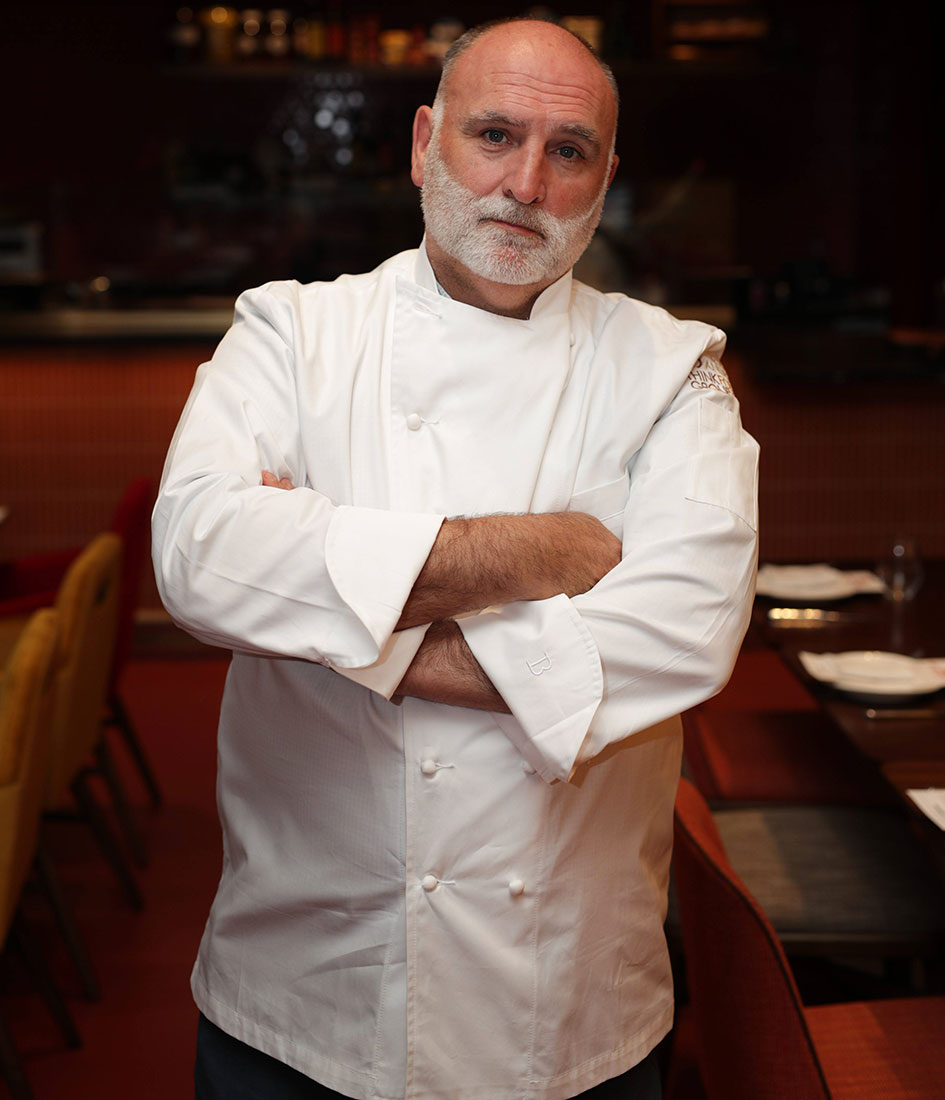You’ve likely heard of turning water into wine, but what about wine (bottles) into sand? Chef Rob Rubba of Washington, D.C.’s Oyster Oyster, is doing just that, then repurposing it into plates for his largely vegetarian tasting menu. It’s just one of the ways that this enterprising chef shows his commitment to sustainability.
“We’re not one of the big boys,” says Rubba. “We’re on the fringe, in the best possible way, but we’re trying to create a better restaurant world.” Rubba is very focused on sustainability. His menu reflects that dedication (think local and seasonal products, natural wines), but he doesn’t stop there. Oyster shells aren’t tossed—they are transformed into votive candles, with the wax made from recycled cooking oil and beeswax from a local producer. Food trim is used in creative ways and there’s a no single-use plastics policy that’s strictly enforced.
Rubba put considerable thought into creating a green space but was stumped when it came to single use bottles and cans. He solved the problem when it came to beer by only serving local beer on draft, but wine and Champagne were entirely different. “We love wine here. Winemakers are doing some great things when it comes to sustainability, and while you often get more than one use out of a bottle, it’s still a problem. If you look at the statistics, not a lot of glass bottles are actually recycled. In D.C., it’s only about ten percent.”

While that number might cause some to throw up their hands, it inspired Rubba to look deeper. Inspired by Silo, a zero-waste restaurant in London, he decided to find a solution, purchasing the same machine they use to crush bottles. Oyster Oyster is the first restaurant in the United States to have it, and while it’s stored offsite at partner Material Things Studio, (where they crush the bottles, rendering them to sand and then turn it into beautiful glass plates), Rubba is very involved. “I like to be hands on,” he says. The bottles are crushed and powderized into abrasive sand with varying coarseness. While the softer, finer sand is made into plates, the coarser sand is used for containers not used for food. Typically, each plate is made from two bottles.
Chef Rubba also partnered with Ruinart Champagne on this project. “They are the oldest Champagne house in the world and an icon, but they stood up and acknowledged the climate crisis, saying that changes need to be made,” explains Rubba. “That aligns with our ethos.”

The unique recycled-bottle plates showcase Rubba’s roasted carrot with fermented cabbage, smoked tofu and dill on a rye flatbread, but this course is also served with a glass of Blanc Singulier Champagne. It’s not just a perfect complement to the dish, but a toast to sustainability—and a shared vision.
“At Ruinart, we’ve had a deep-rooted commitment to working in harmony with nature since our founding in 1729,” says Sarah Pallack, Head of Ruinart, U.S. “This year we proudly championed our commitments to conscious luxury and sustainable winemaking with the release of Blanc Singulier - our first new cuvée in over twenty years and a singular expression of Chardonnay revealed by a changing climate. Just as our winemaking team had to adapt their know-how and savoir faire to recraft a vision for the future of champagne, Chef Rob and the Oyster Oyster team are consistently pushing the boundaries and forging new paths in the world of sustainable fine dining. We are proud that Blanc Singulier is included in this incredible program and we look forward to continuing to work together to support our shared commitments to sustainability and the environment.”
It’s been well-received by diners who appreciate the artful take on the circle of life. “It starts a good dialogue about finding second lives for things,” says Rubba. While he’s considering expanding the program to other restaurants and even creating a line of products at some point, Rubba remains humble. “It’s incredible that we’re able to do this. It makes us wonder: what else can we do?”







